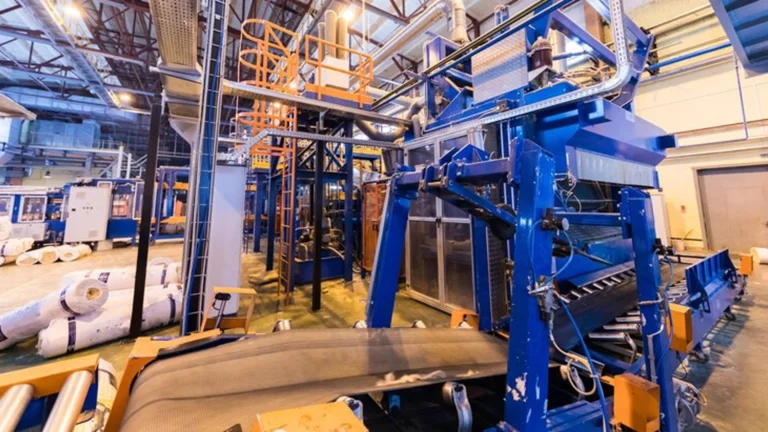Machinery presses are essential tools in various industries, ranging from manufacturing to metalworking. They come in different types and sizes, each designed to perform specific functions. Understanding the various types of presses, their uses, and benefits can help businesses make informed decisions about their operations. This comprehensive guide will delve into the different types of machinery presses, their applications, and the advantages they offer.
TRENDING
A Complete Guide To Bowls Terminology: Key Terms For Players
What Is A Machinery Press?
A machinery press is a mechanical device used to apply pressure to materials to perform various tasks such as shaping, molding, and forming. These machines can exert substantial force, making them essential in manufacturing and fabrication processes. Presses can manipulate materials like metal, plastic, and composite materials, allowing for precise and repeatable results. They play a crucial role in industries such as automotive, aerospace, consumer goods, and electronics.
Types Of Machinery Presses
Machinery presses come in several types, each suited for specific applications. Understanding these types can help you choose the right press for your business needs.
Mechanical Presses
Mechanical presses use a system of gears and levers to amplify force. They are commonly employed in high-speed stamping operations. These presses are typically faster than hydraulic presses and can produce high-volume output. Mechanical presses are ideal for producing small to medium-sized parts with consistent quality and precision.
Hydraulic Presses
Hydraulic presses operate using hydraulic fluid to transfer force. This type of press is known for its ability to produce large amounts of force, making it suitable for heavy-duty applications. Hydraulic presses are versatile and can be used for tasks such as metal forming, molding, and assembly. They are particularly useful for shaping large or thick materials that require substantial pressure.
Pneumatic Presses
Pneumatic presses utilize compressed air to generate force. They are typically used for lighter tasks, such as assembling small parts or applying pressure in packaging processes. Pneumatic presses are often faster than mechanical presses, making them suitable for high-speed applications. They are commonly found in the automotive and electronics industries.
Servo Presses
Servo presses are advanced machines that use servo motors to control the movement and force applied during operations. These presses provide high precision and flexibility, allowing for complex forming tasks. Servo presses are increasingly popular in industries that require tight tolerances and consistent results, such as medical device manufacturing and aerospace.
Multi-Station Presses
Multi-station presses can perform multiple operations in a single machine setup. They are designed to handle several tools at once, enabling the production of complex parts in a single cycle. This type of press is beneficial for reducing setup time and improving efficiency in manufacturing processes.
Applications Of Machinery Presses
Machinery presses are utilized in various applications across multiple industries. Here are some of the key areas where they are commonly used:
Metal Forming
One of the primary applications of machinery presses is metal forming. They can shape and manipulate metal sheets into desired forms, such as brackets, panels, and enclosures. This process is essential in industries such as automotive, aerospace, and construction, where precision and strength are critical.
Plastic Molding
Hydraulic and servo presses are widely used in plastic molding applications. These presses can inject molten plastic into molds to create intricate shapes and components for various products, including consumer goods, automotive parts, and electronic housings.
Assembly Processes
Machinery presses are often employed in assembly processes, where they apply force to fit parts together securely. This application is common in industries such as electronics, where precision assembly is essential for product functionality.
Packaging
In the packaging industry, pneumatic presses are commonly used to seal and compress packaging materials. They ensure that products are securely packaged for transportation and storage, enhancing product integrity and shelf life.
Benefits Of Using Machinery Presses
Investing in machinery presses offers numerous benefits for manufacturers and businesses. Here are some of the key advantages:
Increased Efficiency
Machinery presses can significantly improve production efficiency by automating tasks that would otherwise be labor-intensive. With high-speed operation and precise control, presses can produce large volumes of parts quickly.
Consistency and Quality
Presses provide consistent pressure and control during operations, resulting in high-quality products with tight tolerances. This consistency is crucial for industries where product reliability is essential.
Versatility
Different types of presses can handle various materials and applications, making them versatile tools in manufacturing. Businesses can adapt presses to meet changing production needs without significant capital investment.
Reduced Labor Costs
By automating processes and improving efficiency, machinery presses can reduce labor costs. Fewer workers are needed to operate presses, allowing businesses to allocate resources more effectively.
Improved Safety
Modern presses are designed with safety features that protect operators and reduce the risk of accidents. These features include emergency stop buttons, safety guards, and automated systems that minimize manual handling.
Choosing The Right Press For Your Needs
Selecting the right machinery press for your operations involves several considerations:
Material Type: Consider the materials you will be working with, as different presses are better suited for specific materials.
Production Volume: Determine your production volume needs. High-volume operations may benefit from mechanical or multi-station presses, while lower volumes may be adequately served by hydraulic or pneumatic presses.
Precision Requirements: Evaluate the tolerances required for your products. Servo presses offer high precision, making them suitable for applications with strict quality standards.
Budget: Assess your budget for purchasing and maintaining machinery presses. While some presses may have higher upfront costs, their efficiency and durability can lead to long-term savings.
Space Considerations: Ensure that you have enough space for the press and any necessary supporting equipment, such as tooling and material handling systems.
Maintenance And Safety Considerations
Regular maintenance is essential for ensuring the longevity and reliability of machinery presses. Here are some maintenance tips:
- Routine Inspections: Conduct regular inspections of the press components, including hydraulic systems, motors, and controls.
- Lubrication: Keep all moving parts properly lubricated to reduce wear and tear.
- Cleaning: Maintain cleanliness around the press to prevent dust and debris from affecting performance.
- Training: Provide proper training for operators to ensure safe handling and operation of machinery presses.
- Safety Gear: Enforce the use of appropriate safety gear, such as gloves, goggles, and hearing protection, to protect operators during press operation.
Conclusion
Machinery presses are invaluable tools in various manufacturing and production processes. Understanding the different types of presses, their applications, and the benefits they offer can help businesses make informed decisions about their operations. By investing in the right machinery press and ensuring proper maintenance and safety practices, companies can enhance efficiency, improve product quality, and reduce operational costs.
ALSO READ: Filosofia Kundalini Yoga Explained: Embrace Your Inner Energy
FAQs
What is a machinery press?
A machinery press is a mechanical device used to apply pressure to materials to perform tasks such as shaping, molding, and forming. These presses are essential in various industries, including automotive, aerospace, and manufacturing.
What are the different types of machinery presses?
The main types of machinery presses include mechanical presses, hydraulic presses, pneumatic presses, servo presses, and multi-station presses. Each type serves specific functions and applications.
What industries use machinery presses?
Machinery presses are used in several industries, including automotive, aerospace, electronics, consumer goods, and packaging, due to their versatility and efficiency in production processes.
How do I choose the right machinery press for my business?
To choose the right press, consider factors such as the type of material you’ll be working with, production volume, precision requirements, budget, and available space for the machine.
What maintenance is required for machinery presses?
Regular maintenance for machinery presses includes routine inspections, lubrication of moving parts, cleaning, and training for operators to ensure safe and effective use.

